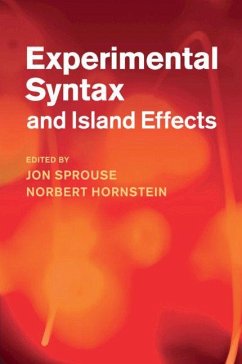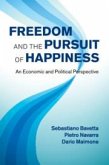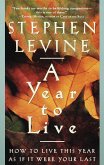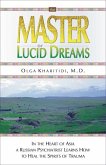Experimental Syntax and Island Effects
Herausgeber: Sprouse, Jon; Hornstein, Norbert
Experimental Syntax and Island Effects
Herausgeber: Sprouse, Jon; Hornstein, Norbert
- Broschiertes Buch
- Merkliste
- Auf die Merkliste
- Bewerten Bewerten
- Teilen
- Produkt teilen
- Produkterinnerung
- Produkterinnerung
This volume takes an empirical approach to an important syntactic phenomenon - the 'island effect'. For the first time, leading linguists and psycholinguists set the topic within an empirical context. This book is ideal for students and researchers interested in cutting-edge experimental techniques in linguistics, psycholinguistics and psychology.
Andere Kunden interessierten sich auch für
![American Identity and the Politics of Multiculturalism American Identity and the Politics of Multiculturalism]() Jack CitrinAmerican Identity and the Politics of Multiculturalism40,99 €
Jack CitrinAmerican Identity and the Politics of Multiculturalism40,99 €![Smartphones within Psychological Science Smartphones within Psychological Science]() David A EllisSmartphones within Psychological Science38,99 €
David A EllisSmartphones within Psychological Science38,99 €![Freedom and the Pursuit of Happiness Freedom and the Pursuit of Happiness]() Sebastiano BavettaFreedom and the Pursuit of Happiness43,99 €
Sebastiano BavettaFreedom and the Pursuit of Happiness43,99 €![Heavy Laden Heavy Laden]() Larry M LogueHeavy Laden41,99 €
Larry M LogueHeavy Laden41,99 €![A Year to Live A Year to Live]() Stephen LevineA Year to Live14,99 €
Stephen LevineA Year to Live14,99 €![Master of Lucid Dreams Master of Lucid Dreams]() Olga KharitidiMaster of Lucid Dreams18,99 €
Olga KharitidiMaster of Lucid Dreams18,99 €![Through Time Into Healing Through Time Into Healing]() Brian L WeissThrough Time Into Healing15,99 €
Brian L WeissThrough Time Into Healing15,99 €-
-
-
This volume takes an empirical approach to an important syntactic phenomenon - the 'island effect'. For the first time, leading linguists and psycholinguists set the topic within an empirical context. This book is ideal for students and researchers interested in cutting-edge experimental techniques in linguistics, psycholinguistics and psychology.
Hinweis: Dieser Artikel kann nur an eine deutsche Lieferadresse ausgeliefert werden.
Hinweis: Dieser Artikel kann nur an eine deutsche Lieferadresse ausgeliefert werden.
Produktdetails
- Produktdetails
- Verlag: Cambridge University Press
- Seitenzahl: 431
- Erscheinungstermin: 12. Dezember 2019
- Englisch
- Abmessung: 229mm x 152mm x 22mm
- Gewicht: 576g
- ISBN-13: 9781108790666
- ISBN-10: 1108790666
- Artikelnr.: 58380652
- Herstellerkennzeichnung
- Libri GmbH
- Europaallee 1
- 36244 Bad Hersfeld
- gpsr@libri.de
- Verlag: Cambridge University Press
- Seitenzahl: 431
- Erscheinungstermin: 12. Dezember 2019
- Englisch
- Abmessung: 229mm x 152mm x 22mm
- Gewicht: 576g
- ISBN-13: 9781108790666
- ISBN-10: 1108790666
- Artikelnr.: 58380652
- Herstellerkennzeichnung
- Libri GmbH
- Europaallee 1
- 36244 Bad Hersfeld
- gpsr@libri.de
1. Experimental syntax and island effects: toward a comprehensive theory of
islands Jon Sprouse and Norbert Hornstein; Part I. Global Issues in the
Investigation of Island Effects: 2. Deriving competing predictions from
grammatical approaches and reductionist approaches to island effects Jon
Sprouse, Matthew W. Wagers and Colin Phillips; 3. Islands in the grammar?
Standards of evidence Philip Hofmeister, Laura Staum Casasanto and Ivan A.
Sag; 4. On the nature of island constraints. I: Language processing and
reductionist accounts Colin Phillips; 5. Computational models of
acquisition for islands Lisa Pearl and Jon Sprouse; 6. On the nature of
island constraints. II: Language learning and innateness Colin Phillips;
Part II. Specific Issues in the Investigation of Island Effects: 7. Memory
mechanisms for wh-dependency formation and their implications for
islandhood Matthew W. Wagers; 8. What's negative about negative islands? A
re-evaluation of extraction from weak island contexts Robert Kluender and
Simone Gieselman; 9. On the structural nature of island constraints Brian
Dillon and Norbert Hornstein; 10. Backgrounded constituents cannot be
'extracted' Adele E. Goldberg; 11. Microvariation in islands Dave Kush,
Akira Omaki and Norbert Hornstein; 12. Subject islands in German revisited
Johannes Jurka; 13. Subject islands are different Maria Polinsky, Carlos G.
Gallo, Peter Graff, Ekaterina Kravtchenko, Adam Milton Morgan and Anne
Sturgeon; 14. What vs. who and which: kind-denoting fillers and the
complexity of whether-islands Theodora Alexopoulou and Frank Keller; 15.
Resumption in English Maria Polinsky, Lauren Eby Clemens, Adam Milton
Morgan, Ming Xiang and Dustin Heestand; 16. The island (in)sensitivity of
sluicing and sprouting Masaya Yoshida, Jiyeon Lee and Michael Walsh Dickey.
islands Jon Sprouse and Norbert Hornstein; Part I. Global Issues in the
Investigation of Island Effects: 2. Deriving competing predictions from
grammatical approaches and reductionist approaches to island effects Jon
Sprouse, Matthew W. Wagers and Colin Phillips; 3. Islands in the grammar?
Standards of evidence Philip Hofmeister, Laura Staum Casasanto and Ivan A.
Sag; 4. On the nature of island constraints. I: Language processing and
reductionist accounts Colin Phillips; 5. Computational models of
acquisition for islands Lisa Pearl and Jon Sprouse; 6. On the nature of
island constraints. II: Language learning and innateness Colin Phillips;
Part II. Specific Issues in the Investigation of Island Effects: 7. Memory
mechanisms for wh-dependency formation and their implications for
islandhood Matthew W. Wagers; 8. What's negative about negative islands? A
re-evaluation of extraction from weak island contexts Robert Kluender and
Simone Gieselman; 9. On the structural nature of island constraints Brian
Dillon and Norbert Hornstein; 10. Backgrounded constituents cannot be
'extracted' Adele E. Goldberg; 11. Microvariation in islands Dave Kush,
Akira Omaki and Norbert Hornstein; 12. Subject islands in German revisited
Johannes Jurka; 13. Subject islands are different Maria Polinsky, Carlos G.
Gallo, Peter Graff, Ekaterina Kravtchenko, Adam Milton Morgan and Anne
Sturgeon; 14. What vs. who and which: kind-denoting fillers and the
complexity of whether-islands Theodora Alexopoulou and Frank Keller; 15.
Resumption in English Maria Polinsky, Lauren Eby Clemens, Adam Milton
Morgan, Ming Xiang and Dustin Heestand; 16. The island (in)sensitivity of
sluicing and sprouting Masaya Yoshida, Jiyeon Lee and Michael Walsh Dickey.
1. Experimental syntax and island effects: toward a comprehensive theory of
islands Jon Sprouse and Norbert Hornstein; Part I. Global Issues in the
Investigation of Island Effects: 2. Deriving competing predictions from
grammatical approaches and reductionist approaches to island effects Jon
Sprouse, Matthew W. Wagers and Colin Phillips; 3. Islands in the grammar?
Standards of evidence Philip Hofmeister, Laura Staum Casasanto and Ivan A.
Sag; 4. On the nature of island constraints. I: Language processing and
reductionist accounts Colin Phillips; 5. Computational models of
acquisition for islands Lisa Pearl and Jon Sprouse; 6. On the nature of
island constraints. II: Language learning and innateness Colin Phillips;
Part II. Specific Issues in the Investigation of Island Effects: 7. Memory
mechanisms for wh-dependency formation and their implications for
islandhood Matthew W. Wagers; 8. What's negative about negative islands? A
re-evaluation of extraction from weak island contexts Robert Kluender and
Simone Gieselman; 9. On the structural nature of island constraints Brian
Dillon and Norbert Hornstein; 10. Backgrounded constituents cannot be
'extracted' Adele E. Goldberg; 11. Microvariation in islands Dave Kush,
Akira Omaki and Norbert Hornstein; 12. Subject islands in German revisited
Johannes Jurka; 13. Subject islands are different Maria Polinsky, Carlos G.
Gallo, Peter Graff, Ekaterina Kravtchenko, Adam Milton Morgan and Anne
Sturgeon; 14. What vs. who and which: kind-denoting fillers and the
complexity of whether-islands Theodora Alexopoulou and Frank Keller; 15.
Resumption in English Maria Polinsky, Lauren Eby Clemens, Adam Milton
Morgan, Ming Xiang and Dustin Heestand; 16. The island (in)sensitivity of
sluicing and sprouting Masaya Yoshida, Jiyeon Lee and Michael Walsh Dickey.
islands Jon Sprouse and Norbert Hornstein; Part I. Global Issues in the
Investigation of Island Effects: 2. Deriving competing predictions from
grammatical approaches and reductionist approaches to island effects Jon
Sprouse, Matthew W. Wagers and Colin Phillips; 3. Islands in the grammar?
Standards of evidence Philip Hofmeister, Laura Staum Casasanto and Ivan A.
Sag; 4. On the nature of island constraints. I: Language processing and
reductionist accounts Colin Phillips; 5. Computational models of
acquisition for islands Lisa Pearl and Jon Sprouse; 6. On the nature of
island constraints. II: Language learning and innateness Colin Phillips;
Part II. Specific Issues in the Investigation of Island Effects: 7. Memory
mechanisms for wh-dependency formation and their implications for
islandhood Matthew W. Wagers; 8. What's negative about negative islands? A
re-evaluation of extraction from weak island contexts Robert Kluender and
Simone Gieselman; 9. On the structural nature of island constraints Brian
Dillon and Norbert Hornstein; 10. Backgrounded constituents cannot be
'extracted' Adele E. Goldberg; 11. Microvariation in islands Dave Kush,
Akira Omaki and Norbert Hornstein; 12. Subject islands in German revisited
Johannes Jurka; 13. Subject islands are different Maria Polinsky, Carlos G.
Gallo, Peter Graff, Ekaterina Kravtchenko, Adam Milton Morgan and Anne
Sturgeon; 14. What vs. who and which: kind-denoting fillers and the
complexity of whether-islands Theodora Alexopoulou and Frank Keller; 15.
Resumption in English Maria Polinsky, Lauren Eby Clemens, Adam Milton
Morgan, Ming Xiang and Dustin Heestand; 16. The island (in)sensitivity of
sluicing and sprouting Masaya Yoshida, Jiyeon Lee and Michael Walsh Dickey.








